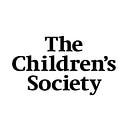Appropriate language in relation to child exploitation
When talking about children and exploitation, language matters. It can be the difference between a child being properly safeguarded or put at further risk of exploitation.
The impact of language
The more we speak and listen to victims and survivors of exploitation, the better we understand how our language can impact them and the support they receive. Changing our language can make a significant difference not only to the young people with whom we work, but also to our own mindset and decision-making.
“The language we use to describe things shapes how we perceive them.”
Individuals rarely intend to use language that is victim blaming. It’s often unconscious. The language we use is shaped by and normalised within the cultures we work, live, and spend time in.
Language is always changing. Terms that were common and accepted in the recent past may no longer be. It is important to have an open and reflective mindset to ensure we all adapt, just as language does over time.
Victim blaming
Victim-blaming language can reinforce the shame and guilt that perpetrators make their victims feel when trying to control them. It can also strengthen emotional bonds between victims and perpetrators. It creates a mind-set in which both exploiter and exploited are blameworthy and united as ‘part of a team’.
It can further create barriers between professionals and young people as it may lead to a young person thinking they will not be believed or supported if they share their experience of abuse. This message is often reinforced by exploiters who will try and distance the young person from safeguarding professionals and positive influences.
The persistent use of victim-blaming terminology is likely to alter the perspective of a professional. This language is both symptomatic of and a contributor towards compassion fatigue and can therefore also have a negative impact on staff well-being and effective practice across teams and services.
Inappropriate language example:
‘Money mules’
Why is it a problem?
It describes these children as animals. It dehumanises them and risks reinforcing negative narratives and stereotypes of child victims as offenders. It also risks creating negative self-image amongst young people.
The term ‘money mule’ is also unhelpful because it focuses the conversation entirely on the person’s actions — in this case fraudulent bank activity — and ignores the complexity of the situation and the child’s exploitation while implying consent and agency. In the same way that describing a criminal exploited young person groomed into county lines as a ‘drug dealer’ is unhelpful, so is the use of the term ‘money mules’ in this context.
The reality
Describing children whose bank accounts are used for criminal activity as ‘money mules’, ignores the full reality of their experiences and minimises the control, coercion and abuse they may have experienced. The recruitment of these victims follows a familiar pattern to other forms of child exploitation. They are targeted by perpetrators and then groomed, often through promises of payment or gifts (such as online gaming credits or skins), they may be tested through small transactions and are eventually trapped in debt bondage and potential poverty through funds being confiscated and accounts shut down. Exploiters will then capitalise on this and use the situation to coerce the child into other forms of exploitation.
What should be done?
Using appropriate language can help professionals to reframe the issue from one of fraud, criminality, and choice, to one of exploitation and abuse. This shift encourages appropriate safeguarding interventions which lead to improved support and outcomes for children.
